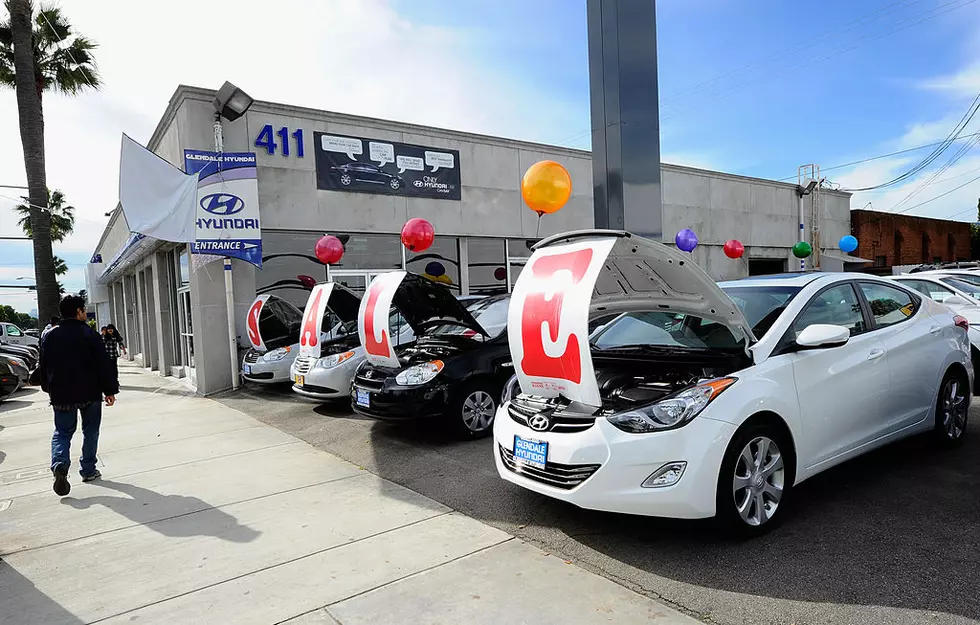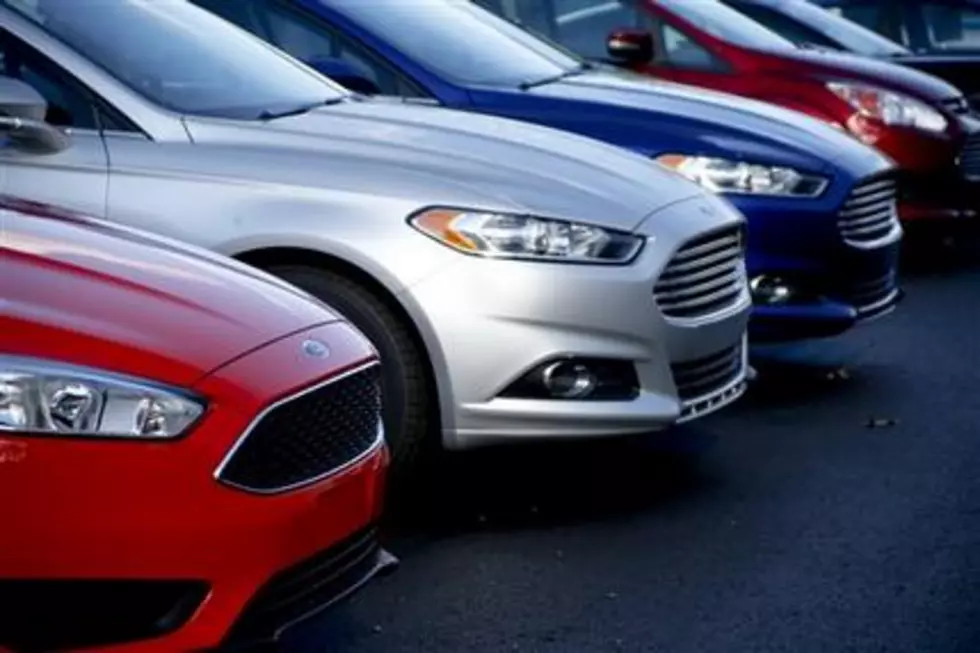
Auto Sales Up in March
America is getting back to work, and it needs pickup trucks.
Strong truck demand in March drove U.S. auto sales to their highest monthly total since August 2007, as everyone from oil and gas producers to local home builders raced to replace the aging trucks they held onto during the recession. Overall auto sales rose 3.4 percent from March of last year.
"I think day-to-day business is the best it's been in five years," said Tim Parker, owner of a Chrysler-Dodge-Jeep-Ram dealer in Hot Springs, Ark. Parker recently joined a Chrysler program that helps him stock pickups so he has inventory ready when business owners come calling.
March is typically a good month for the auto industry. Many car buyers put their tax refund checks toward a down payment. And Japanese automakers, whose fiscal year ends in March, often juice sales with big incentives to end the year on a high note.
But this year had additional incentives for buyers. Fuel prices ended the month lower than a year ago. The number of Americans seeking unemployment benefits fell to a five-year low during March. Interest rates are low. And the stock market -- which is a strong predictor of auto sales -- closed the first quarter with the S&P 500 at an all-time high.
New cars are also enticing buyers. The newly redesigned Nissan Altima sedan outsold the Toyota Camry, the perennial midsize king, in March by 100 vehicles. That hadn't happened since May 2011. The redesigned Honda Accord, which went on sale at the end of last year, also came close to outselling the Camry, which was last redesigned in 2011.
But pickup trucks were the big drivers in March. GM, Ford and Chrysler sold a total of 154,722 full-size pickups, up 14 percent from a year ago. It would be the third straight month that pickup sales have outpaced overall industry sales.
Total sales in March reached 1.45 million, the highest monthly total for the industry since August 2007, according to AutoData.
Pickup truck sales should keep increasing through this year and at least into early next year, said Jeff Schuster, senior vice president of forecasting for LMC Automotive, a Detroit-area forecasting firm.
Small businesses and the housing industry are recovering from the recession, and automakers are offering big discounts, especially as GM tries to clear out older models before the debut of its 2014 pickups later this spring.
Edmunds.com, a car buying site, estimates that GM offered $5,800 in discounts on the Chevrolet Silverado in March, compared with $4,010 for its chief rival, Ford's F-150.
"I think the pickup truck battle is starting to heat up at the same time demand heats up," Schuster said.
After seeing the pace of March sales, Edmunds raised its full-year U.S. sales forecast from 15 million to 15.5 million. That's still below the high of almost 17 million in 2005, but nearly 50 percent better than the 10.4 million vehicles sold in 2009.
Things look so good that some analysts think automakers will have to increase production and hire more workers to keep up.
Automakers have added 125,800 jobs since February of 2010. That's a nearly 20 percent increase in industry employment, according to the U.S. Department of Labor.
But Michael Robinet, managing director of IHS Automotive, which tracks production, said many U.S. auto plants are running almost around-the-clock to meet demand. By the end of the year, more than half the vehicles made in North America will come from plants running the maximum three shifts, Robinet said.
"We're really bumping up against the edge," he said. "So it really is brick-and-mortar time."
Ford is already producing as many Fusion midsize sedans as it can sell, said Erich Merkle, Ford's top U.S. sales analyst. Supplies will be low until this fall, when the company adds a new shift with 1,200 workers at the Michigan plant that will build the Fusion.
"We're going to need more capacity," said Merkle. Ford plans to increase production in North America by 9 percent in the second quarter.
But after going through a severe downsizing during the recession, companies are also wary of adding factory space, fearing the cost of having too much if the economy heads south. GM said Tuesday that it has no plans to increase production because its factories can handle the expected slow-and-steady growth.
Sales at Ford and GM each rose around 6 percent in March. GM reported big increases for Buick and Cadillac, which both have new small cars, while Ford's Fusion sedan and Escape SUV both reported record monthly sales. Ford's Lincoln luxury brand was down 23 percent. But the arrival of the MKZ sedan at dealerships this month should help turn sales around, the company said.
Toyota said its sales were up 1 percent. Sales of the new Toyota Avalon and Lexus ES sedans doubled over last March, making up for double-digit losses for the Prius hybrid and Camry sedan.
Other automakers reporting Tuesday:
-- Chrysler's sales rose 5 percent thanks to a 25 percent increase for the Ram pickup and big gains for the Dodge Avenger and Challenger sedans.
-- Nissan's sales gained 1 percent to 137,726, its highest ever monthly U.S. sales. Sales of the Leaf electric car reached 2,236 -- almost 300 percent more than last year -- after Nissan lowered its price. Sales of the new Pathfinder SUV were also strong.
-- Volkswagen's sales were up 3 percent thanks to strong sales of the Beetle small car and CC sedan.
-- Hyundai's sales fell 2 percent from March of last year, which was the automaker's highest sales month ever. Elantra compact sales were up 33 percent, but sales of the company's top-selling car, the Sonata, plunged more than 22 percent.
-- Honda's sales rose 7 percent thanks to strong demand for the Accord and the new Acura RDX crossover.
(Copyright 2013 by The Associated Press. All Rights Reserved.)
More From New Jersey 101.5 FM









